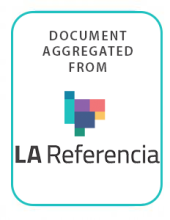Land Library
Bienvenue dans la bibliothèque du Land Portal. Explorez notre vaste collection de ressources en libre accès (plus de 74 000), comprenant des rapports, des articles scientifiques, des articles de recherche, des publications évaluées par des pairs, des documents juridiques, des vidéos et bien plus encore.
/ library resources
Showing items 1 through 9 of 41.This paper engages in a discussion between regulationists and urban scientists with the aim of bringing awareness ofthe growing role of property markets as drivers of contemporaneous capitalist regimes — a dimension that has notbeen given proper consideration by the French Regulation School.
In this paper I will examine how logging in Papua New Guinea affects the relationship between the state and the local communities on whose lands logging operations take place.
In this paper I will examine how logging in Papua New Guinea affects the relationship between the state and the local communities on whose lands logging operations take place.
We study label framing effects in linear public goods games. By accounting for heterogeneous frame connotation, we can identify individual framing effects. We test for such effects in a field experiment on irrigation management in India.
East Lombok Regency has different beach variations from the north, middle, and south in terms of its constituent material. The beauty of the beach in East Lombok District has not been well managed and developed so that it is less developed than the other beaches in Lombok Regency.
Indonesia has a large area of degraded land, i.e. 30 million ha, which could potentially be utilized for biofuel plantations. The leguminous tree pongamia (Pongamia pinnata syn. Milettia pinnata) could be utilized to produce biofuel while restoring degraded land.
Urban agriculture has been theorized by social scientists, and even some urban growers, as a means of reclaiming the commons. But what does “reclaiming the commons” entail? A longue-durée genealogy reveals distinct socio-legal imaginations of the commons and visions of how it might be reclaimed.
The dynamics of urbanization and growth of the Latin American city is due to different geographical, economic, and social factors.
Low productivity cattle ranching, with its linkages to rural poverty, deforestation and greenhouse gas (GHG) emissions, remains one of the largest sustainability challenges in Brazil and has impacts worldwide.


